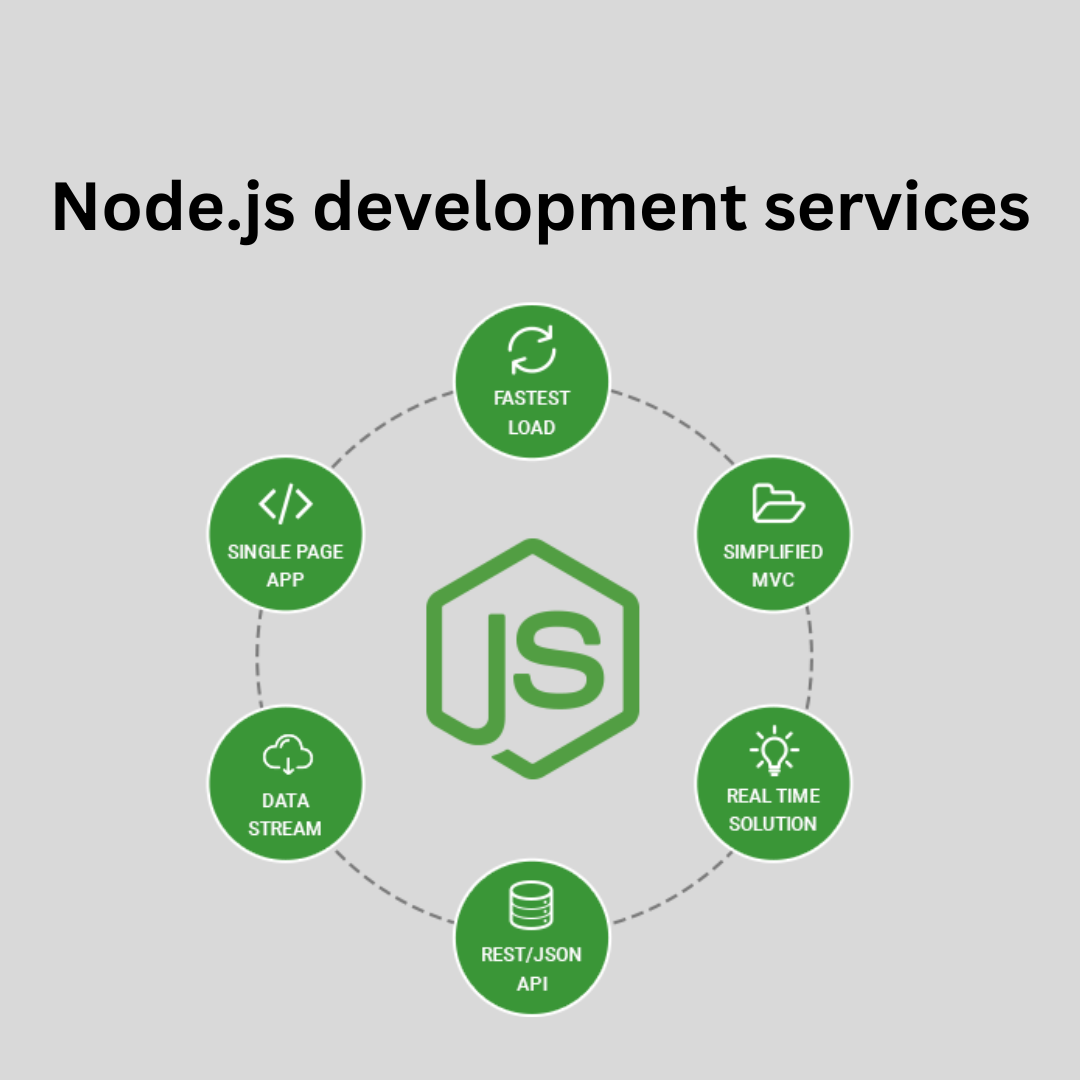Introduction:
In the fast-paced world of web development, staying ahead of the curve is imperative. As businesses strive to deliver seamless and efficient web applications, the choice of the right technology becomes paramount. Node.js, a versatile and powerful JavaScript runtime, has emerged as a game-changer in this realm. In this comprehensive guide, we will delve into the world of Node.js development services, exploring its features, benefits, and how businesses can leverage its capabilities to build robust applications.
I. Understanding Node.js:
Node.js, built on the V8 JavaScript runtime, is an open-source, cross-platform runtime environment. Its non-blocking, event-driven architecture makes it exceptionally well-suited for building scalable and high-performance applications. Originally developed by Ryan Dahl in 2009, Node.js has since gained widespread adoption in the development community.
II. Key Features of Node.js:
- Single Programming Language: Node.js allows developers to use JavaScript for both server-side and client-side scripting. This unification simplifies the development process and promotes code reuse.
- Non-Blocking I/O: The asynchronous nature of Node.js enables non-blocking I/O operations, allowing multiple requests to be processed concurrently. This results in improved performance and responsiveness.
- Scalability: Node.js is designed with scalability in mind, making it ideal for applications that need to handle a large number of concurrent connections. It excels in real-time applications such as chat applications, online gaming, and collaborative tools.
- Rich Ecosystem: Node.js has a vast and vibrant ecosystem of Node Package Manager modules. Developers can easily find and integrate pre-built modules to enhance functionality, saving time and effort in the development process.
- Real-time Capabilities: One of the standout features of Node.js is its ability to handle real-time communication effortlessly. Leveraging technologies like Web Sockets, developers can create interactive and engaging applications that enable users to experience updates and interactions in real-time. Whether it’s live chat, collaborative editing, or live streaming, Node.js facilitates the development of applications that redefine user experiences.
- Cross-Platform Development: Node.js simplifies the development process by providing a consistent runtime environment across different platforms. This enables developers to write code that works seamlessly on various operating systems, reducing the complexities associated with platform-specific issues. As a result, Node.js development services empower businesses to reach a wider audience by delivering cross-platform applications that run smoothly on desktops, mobile devices, and the cloud.
III. Benefits of Best Node.js Development Services:
- Speed and Efficiency: The event-driven architecture and non-blocking I/O make Node.js exceptionally fast, leading to quick application development and enhanced overall performance.
- Cost-Effective: Node.js enables the development of scalable applications with fewer resources, making it a cost-effective choice for businesses looking to optimize development budgets.
- Real-time Capabilities: Node.js is well-suited for real-time applications, such as chat applications and live streaming services, where instant data updates and interactions are crucial.
- Cross-Platform Compatibility: Being cross-platform, Node.js applications can run seamlessly on various operating systems, ensuring a consistent user experience across different devices.
IV. Use Cases for Node.js Development:
- Web Application Development: Node.js is widely used for building dynamic and responsive web applications. Its ability to handle concurrent connections and real-time data makes it a preferred choice for modern web development.
- API Development: Node.js is an excellent choice for building robust and scalable APIs. Its lightweight and efficient nature make it suitable for handling a large number of API requests.
- Micro services Architecture: Node.js is well-suited for micro services architecture, allowing businesses to build modular and scalable applications that can be easily maintained and updated.
- IoT Applications: The lightweight nature of Node.js makes it suitable for developing applications for the Internet of Things (IoT). Its ability to handle a large number of concurrent connections is beneficial in IoT scenarios.
V. Leveraging Node.js Development Services for Business Success:
- Collaboration and Communication: Node.js facilitates seamless collaboration and communication within development teams. Its single programming language (JavaScript) simplifies communication between front-end and back-end developers.
- Reduced Time-to-Market: The speed and efficiency of Node.js contribute to reduced development time, enabling businesses to bring their products to market faster and gain a competitive edge.
- Scalability for Growth: Node.js scalability ensures that applications can handle increased user loads and data volumes as businesses grow. This adaptability is crucial for long-term success.
- Enhanced User Experience: The real-time capabilities of Node.js contribute to an enhanced user experience, making it suitable for applications that require instant updates and interactions.
Conclusion:
In conclusion, Node.js development services offer a powerful and efficient solution for businesses seeking to build scalable, high-performance applications. With its speed, versatility, and real-time capabilities, Node.js has become a go-to choice for modern web development. Leveraging the benefits of Node.js can propel businesses toward success in an increasingly competitive digital landscape. As technology continues to evolve, Node.js stands as a testament to the innovation and adaptability that define the world of web development.











